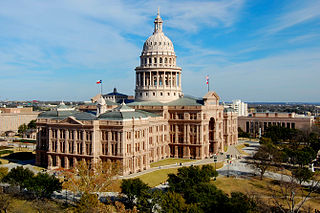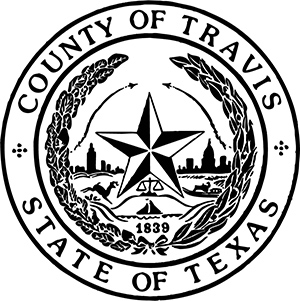January 17, 2017 •
Texas Legislators Push for Ethics Reform
Legislators will attempt to pass a major ethics reform for the second time after their effort during the 2015 legislative session failed. The plan gained wide spread support in 2015 but was ultimately defeated in the House due to a […]
 Legislators will attempt to pass a major ethics reform for the second time after their effort during the 2015 legislative session failed. The plan gained wide spread support in 2015 but was ultimately defeated in the House due to a provision increasing donor disclosure requirements for dark money groups.
Legislators will attempt to pass a major ethics reform for the second time after their effort during the 2015 legislative session failed. The plan gained wide spread support in 2015 but was ultimately defeated in the House due to a provision increasing donor disclosure requirements for dark money groups.
The new reform package, Senate Bill 14, has four main provisions to:
- Prohibit politicians convicted of felony corruption charges from collecting state pensions
- Require disclosure if companies a lobbyist is tied to have received government contracts or served as bond counsel to a governmental entity
- Decrease the amount of money lobbyists can spend on food and drinks for legislators without triggering disclosure
- Ban registered lobbyists from running for elected office
Sen. Van Taylor who is sponsoring Senate Bill 14 has said reform is needed beyond the provisions of the reform package and will continue to file additional ethics bills. While Senate Bill 14 has not yet been filed, Taylor has filed Senate Bill 137 aiming to prohibit state agencies from using state funds to employ a person who is registered as a lobbyist or who engages in lobbying activities.
Gov. Greg Abbott supports the passage of an ethics package.
Photo of the Texas State Capitol By LoneStarMike via Wikimedia Commons
November 21, 2016 •
Monday News Roundup
Lobbying “Trump’s New Lobbying Rules Could ‘Drain the Swamp.’ But They May Be Illegal and Are Porous.” by Catherine Ho for The Washington Post Missouri: “Missouri Senate Moves to End Pizza-for-Play Bank Account” by Kurt Erickson for St. Louis Post-Dispatch […]
 Lobbying
Lobbying
“Trump’s New Lobbying Rules Could ‘Drain the Swamp.’ But They May Be Illegal and Are Porous.” by Catherine Ho for The Washington Post
Missouri: “Missouri Senate Moves to End Pizza-for-Play Bank Account” by Kurt Erickson for St. Louis Post-Dispatch
Campaign Finance
Texas: “Zimmerman Appeals Campaign Contribution Limits” by Jo Clifton for Austin Monitor
Ethics
“Ethics Rules Bar Bannon from Helping Breitbart” by Isaac Arnsdorf and Taylor Gee for Politico
Michigan: “Text Messages Help FBI Nab 3rd Macomb County Politician in Rizzo Probe” by Tresa Baldas and Christina Hall for Detroit Free Press
New Jersey: “Passaic Mayor Pleads Guilty to Accepting Bribes” by Richard Cowen and Todd South for Bergen Record
Legislative Issues
“Rep. Tim Ryan Launches Long-Shot Challenge to Pelosi as Democrats Struggle with Postelection Strategy” by Paul Kane for The Washington Post
November 2, 2016 •
Texas Representative Announces 2017 Resignation if Elected on Nov. 8
Texas State House District 118 Rep. Dawnna Dukes announced she will resign January 10, 2017, citing health issues stemming from a 2013 car accident. Dukes is running for a 12th term and will remain on the November ballot. If she […]
 Texas State House District 118 Rep. Dawnna Dukes announced she will resign January 10, 2017, citing health issues stemming from a 2013 car accident.
Texas State House District 118 Rep. Dawnna Dukes announced she will resign January 10, 2017, citing health issues stemming from a 2013 car accident.
Dukes is running for a 12th term and will remain on the November ballot. If she is successful in the general election, the seat will remain vacant until a special election is called next year. Her Republican opponent is calling for an immediate resignation to eliminate the possibility of the district’s residents remaining unrepresented for months.
The resignation comes amidst allegations and an investigation regarding her alleged use of state resources for non-governmental purposes. The current allegations are the most recent in a string of ethics and campaign finance controversies throughout her 22-year career.
Photo of Rep. Dawnna Dukes courtesy of the Texas House of Representatives website.
October 20, 2016 •
Dallas County, TX Approves New Purchasing Manual
County commissioners approved a new purchasing manual to ensure consistency and avoid impropriety within the county’s contracting process. A new hiring manager was brought in last year to overhaul a Purchasing Department troubled for years with allegations of political meddling. […]
 County commissioners approved a new purchasing manual to ensure consistency and avoid impropriety within the county’s contracting process.
County commissioners approved a new purchasing manual to ensure consistency and avoid impropriety within the county’s contracting process.
A new hiring manager was brought in last year to overhaul a Purchasing Department troubled for years with allegations of political meddling.
Pursuant to the new manual, the Commissioners Court will still approve contracts handled by the Purchasing Department, but will be unable to override the department’s vendor choices. These changes are the latest in a series of improvements following the federal indictment of a county commissioner for rigging bids and accepting kickbacks in 2014.
September 26, 2016 •
Changes to Austin, Texas, Lobbying Law Effective June 1, 2017
On September 22, an ordinance revising the lobbying law for the city of Austin, Texas, was approved by the City Council. The new law repeals and replaces Chapter 4-8 of the city’s code relating to the regulation of lobbyists. The […]
 On September 22, an ordinance revising the lobbying law for the city of Austin, Texas, was approved by the City Council.
On September 22, an ordinance revising the lobbying law for the city of Austin, Texas, was approved by the City Council.
The new law repeals and replaces Chapter 4-8 of the city’s code relating to the regulation of lobbyists.
The ordinance, which was to have taken take effect on January 1, 2017, was amended before passing and will now take effect on June 1, 2017.
September 1, 2016 •
Austin, Texas Campaign Finance Disclosure Amendments Take Effect
On September 1, new provisions in the city of Austin’s campaign finance laws take effect. Ordinance No. 20160623-020 increases disclosure requirements for nonprofits and independent groups making political contributions or expenditures in excess of $500. These organizations are required to […]
 On September 1, new provisions in the city of Austin’s campaign finance laws take effect.
On September 1, new provisions in the city of Austin’s campaign finance laws take effect.
Ordinance No. 20160623-020 increases disclosure requirements for nonprofits and independent groups making political contributions or expenditures in excess of $500. These organizations are required to report the identities of who contributed to them unless the donation was directed to not be used for political purposes. Contributions for investments and commercial transactions also do not require disclosure of the contributor.
Another part of the ordinance, not effective until February 1, 2017, requires intermediaries transferring more than $500 for political campaign purposes to disclose details of the transfers, including the occupation and employer of the person making the transfer and the purpose and description of each transfer.
The coat of arms of Austin, Texas by Glasshouse on Wikimedia Commons.
August 23, 2016 •
Austin, TX Moves Closer to New Lobbying Law
On August 18, an ordinance revising the lobbying law for the city of Austin, Texas, met with preliminary approval from the City Council. The new proposed law repeals and replaces Chapter 4-8 of the city’s code relating to the regulation […]
 On August 18, an ordinance revising the lobbying law for the city of Austin, Texas, met with preliminary approval from the City Council. The new proposed law repeals and replaces Chapter 4-8 of the city’s code relating to the regulation of lobbyists.
On August 18, an ordinance revising the lobbying law for the city of Austin, Texas, met with preliminary approval from the City Council. The new proposed law repeals and replaces Chapter 4-8 of the city’s code relating to the regulation of lobbyists.
The draft ordinance was approved on a first reading only and will require at least two more approvals from the City Council to become law. The City Council is next meeting again on September 1, but the proposed ordinance is not yet on the council’s agenda for that date. The ordinance may be addressed later in the year following the adoption of the city budget in mid-September, according to the Austin Monitor.
If passed as currently drafted, the new ordinance would take effect on January 1, 2017.
Photo of the Austin, Texas skyline by Argash on Wikimedia Commons.
On July 20, a federal court ruled the city of Austin’s campaign contribution blackout period unconstitutional. The blackout period allowed officeholders, candidates, and their respective committees to only accept campaign contributions during the last 180 days before an election or […]
 On July 20, a federal court ruled the city of Austin’s campaign contribution blackout period unconstitutional. The blackout period allowed officeholders, candidates, and their respective committees to only accept campaign contributions during the last 180 days before an election or recall election. In Zimmerman v. City of Austin, Texas, the United States District Court for the Western District of Texas, Austin Division, concluded the law was unconstitutional under the First Amendment of the U.S. Constitution.
On July 20, a federal court ruled the city of Austin’s campaign contribution blackout period unconstitutional. The blackout period allowed officeholders, candidates, and their respective committees to only accept campaign contributions during the last 180 days before an election or recall election. In Zimmerman v. City of Austin, Texas, the United States District Court for the Western District of Texas, Austin Division, concluded the law was unconstitutional under the First Amendment of the U.S. Constitution.
In addition, the court found an Austin City Charter provision designating a 90-day requirement for campaign account terminations to be unconstitutional.
District Court Judge Lee Yeakel did uphold the city’s contribution limits for mayoral and city council candidates, finding the limit a constitutional regulation of protected First Amendment activity. The ruling also found City Councilman Don Zimmerman, who originally brought the lawsuit last summer, did not have standing to challenge the aggregate limits of the total contributions a candidate can accept from sources other than natural persons eligible to vote in a postal zip code completely or partially within the Austin city limits.
Photo of Austin, Texas by Eric A. Ellison on Wikimedia Commons.
On June 22, lobbyists in Texas will be required to include previously excluded types of compensation when reporting lobbyist activity. On June 1, the Texas Ethics Commission adopted rules changing some regulations. One regulation currently allows for compensation exceptions for […]
 On June 22, lobbyists in Texas will be required to include previously excluded types of compensation when reporting lobbyist activity. On June 1, the Texas Ethics Commission adopted rules changing some regulations.
On June 22, lobbyists in Texas will be required to include previously excluded types of compensation when reporting lobbyist activity. On June 1, the Texas Ethics Commission adopted rules changing some regulations.
One regulation currently allows for compensation exceptions for purposes of calculating the threshold requiring registration as a lobbyist. Those same exceptions were also exempted from lobbyist activity reporting. Effective June 22, those exceptions for calculating the registration threshold remain, but registered lobbyists will now have to report those types of compensation.
Additionally, the Ethics Commission enacted a rule narrowing the gift exemption for permissible fact-finding trips provided to government officials and employees by lobbyists.
The Texas Ethics Commission adopted rule changes to conform with House Bill 3517 of 2015. The bill had removed the exemption for registration for an individual who is solely paid to communicate in a capacity other than as an employee of […]
 The Texas Ethics Commission adopted rule changes to conform with House Bill 3517 of 2015. The bill had removed the exemption for registration for an individual who is solely paid to communicate in a capacity other than as an employee of a vendor of a product or service to a member of the executive branch concerning state agency purchasing decisions involving a product, service, or service provider or negotiations regarding such decisions if the compensation for the communication is not totally or partially contingent on the outcome of any administrative action.
The Texas Ethics Commission adopted rule changes to conform with House Bill 3517 of 2015. The bill had removed the exemption for registration for an individual who is solely paid to communicate in a capacity other than as an employee of a vendor of a product or service to a member of the executive branch concerning state agency purchasing decisions involving a product, service, or service provider or negotiations regarding such decisions if the compensation for the communication is not totally or partially contingent on the outcome of any administrative action.
The Texas Ethics Commission Rules definition of independent contractor under T.E.C.R. §34.1(5) has been repealed. The Texas Ethics Commission Rules allowing for $75 registration for certain independent contractors under T.E.C.R. §34.46 has also been repealed. On May 3, the rule changes became effective.
March 30, 2016 •
Travis County, TX May Consider Lobbying Ordinance
A new lobbying ordinance may be coming to Travis County, Texas, according to the Austin American-Statesman. An ethics code, possibly including a lobbyist registration and reporting component, is being considered by the county, with recommendations to be accepted in May […]
 A new lobbying ordinance may be coming to Travis County, Texas, according to the Austin American-Statesman. An ethics code, possibly including a lobbyist registration and reporting component, is being considered by the county, with recommendations to be accepted in May from a task force made up of county officials.
A new lobbying ordinance may be coming to Travis County, Texas, according to the Austin American-Statesman. An ethics code, possibly including a lobbyist registration and reporting component, is being considered by the county, with recommendations to be accepted in May from a task force made up of county officials.
“As a general rule, it’s really important for all government functioning to be very, very transparent and for the public and the elected officials to know who’s talking to them on behalf of whom. And right now, there’s no lobbyist registration requirement,” said Commissioner Brigid Shea according to the paper.
Seal of Travis County courtesy of Travis County, Texas on Wikimedia Commons.
February 8, 2016 •
Special Elections for Texas House Seats to Be Held May 7
On February 3, Texas Gov. Greg Abbott announced a special election will be held on May 7 for Texas House District 120. The winner will serve the remainder of the term for the seat left vacant by Ruth Jones McClendon, […]
 On February 3, Texas Gov. Greg Abbott announced a special election will be held on May 7 for Texas House District 120. The winner will serve the remainder of the term for the seat left vacant by Ruth Jones McClendon, who resigned on January 31.
On February 3, Texas Gov. Greg Abbott announced a special election will be held on May 7 for Texas House District 120. The winner will serve the remainder of the term for the seat left vacant by Ruth Jones McClendon, who resigned on January 31.
A special election will also be held on the same date for House District 139 to serve the unexpired term left vacant by Sylvester Turner, who became the mayor of Houston on January 2.
The special elections join the state’s May uniform election date.
Photo of Ruth Jones McClendon courtesy of the Texas House of Representatives website.
December 21, 2015 •
Austin, TX to Reform City Lobbying and Campaign Finance Laws
On December 17, the Austin, Texas City Council voted to reform the city’s lobbying and campaign finance laws. The council approved a lobbyist reform proposal, which includes initiating changes to city ordinances relating to the regulation of lobbyists and to […]
 On December 17, the Austin, Texas City Council voted to reform the city’s lobbying and campaign finance laws.
On December 17, the Austin, Texas City Council voted to reform the city’s lobbying and campaign finance laws.
The council approved a lobbyist reform proposal, which includes initiating changes to city ordinances relating to the regulation of lobbyists and to the duties and functions of the Ethics Review Commission. The council also approved a resolution regarding mandating disclosure of campaign contributions and expenditures by non-profits and other entities not currently required to disclose their funding. The city manager has been directed by the council to write these ordinances, which will then be put to a vote by the council sometime in 2016.
December 15, 2015 •
Austin, Texas Campaign Finance Rules Challenged
On December 14, testimony was heard in a case in U.S. District Court challenging the city of Austin’s campaign finance ordinances. City councilman Don Zimmerman originally brought the lawsuit last summer alleging the city’s blackout period for fundraising and the […]
 On December 14, testimony was heard in a case in U.S. District Court challenging the city of Austin’s campaign finance ordinances. City councilman Don Zimmerman originally brought the lawsuit last summer alleging the city’s blackout period for fundraising and the political contribution limits are unconstitutional violations of free speech. The trial being conducted before U.S. District Judge Lee Yeakel is expected to conclude this week.
On December 14, testimony was heard in a case in U.S. District Court challenging the city of Austin’s campaign finance ordinances. City councilman Don Zimmerman originally brought the lawsuit last summer alleging the city’s blackout period for fundraising and the political contribution limits are unconstitutional violations of free speech. The trial being conducted before U.S. District Judge Lee Yeakel is expected to conclude this week.
Photo of Austin, Texas skyline at night by Argash on Wikimedia Commons.
State and Federal Communications, Inc. provides research and consulting services for government relations professionals on lobbying laws, procurement lobbying laws, political contribution laws in the United States and Canada. Learn more by visiting stateandfed.com.

